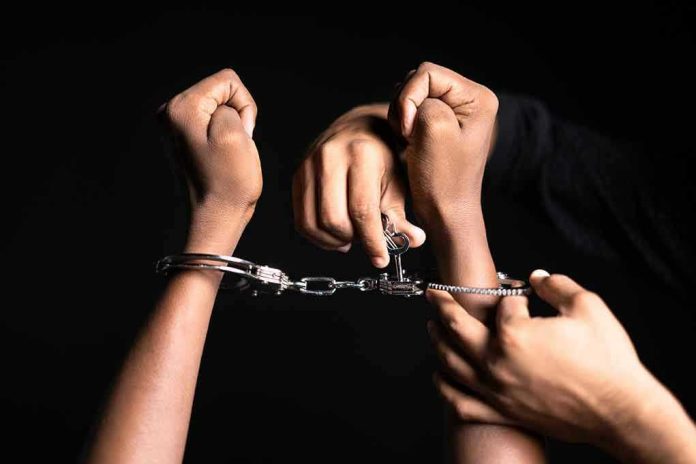
When a WNBA star is forced to alter her life due to threats from a stalker, it raises profound questions about athlete safety and online dangers.
At a Glance
- Michael Lewis sentenced to 2.5 years for stalking Caitlin Clark.
- Online threats escalated to in-person arrest in Indiana.
- Case underscores the need for stronger athlete protection.
- Sentence highlights seriousness of online harassment.
Stalking and Harassment Lead to Jail Time
Michael Lewis, a 55-year-old Texas resident, has been sentenced to 2.5 years in prison for stalking and harassing WNBA star Caitlin Clark. This case, which concluded on July 28, 2025, in Marion County court, involved Lewis’s persistent online threats and explicit messages directed at Clark. The situation escalated when Lewis traveled from Texas to Indiana, where Clark plays for the Indiana Fever, leading to his arrest on January 12, 2025.
The severity of Lewis’s actions, crossing state lines to physically approach his victim, made this case particularly alarming. Prosecutor Ryan Mears emphasized that the legal system must take such threats seriously to protect public figures from potential harm. The court’s decision reflects a growing recognition of the dangers posed by online harassment, particularly for high-profile athletes.
The Impact on Caitlin Clark
Caitlin Clark, a prominent player for the Indiana Fever, found her life significantly disrupted by Lewis’s actions. The harassment forced Clark to reconsider her safety and public behavior, highlighting the vulnerability of athletes to targeted threats. Clark reported feeling unsafe, which is a chilling reminder of the real-world impact online threats can have on victims.
The Indiana Fever organization, alongside law enforcement, has taken steps to ensure Clark’s safety. This case has drawn attention to the importance of robust security measures for athletes, both in their personal lives and at public events. The legal outcome not only provides Clark with some relief but also sets a precedent for handling similar cases in the future.
A Legal Precedent and Broader Implications
Lewis’s sentencing marks a significant step in addressing online stalking of athletes. By imposing a substantial prison term, the court sends a clear message about the seriousness of such offenses. This case may influence future legal procedures and security protocols, potentially leading to stronger protections for public figures against harassment.
Beyond the immediate legal ramifications, this case sparks a broader conversation about the responsibilities of social media platforms in monitoring and mitigating harmful behavior. As society grapples with the intersection of digital communication and personal safety, the need for comprehensive solutions becomes increasingly apparent.
Future Considerations and Safety Measures
The aftermath of this case will likely see increased scrutiny on the measures in place to protect athletes from similar threats. Sports organizations may need to reevaluate their security strategies, ensuring that players have the necessary support and protection both online and offline. This could lead to heightened costs for security but also greater peace of mind for athletes.
Moreover, the legal system’s recognition of the impact of online harassment on real-world safety could pave the way for more stringent laws and penalties. As public awareness grows, so too does the pressure on institutions to take decisive action against those who use digital platforms to threaten and intimidate others.













